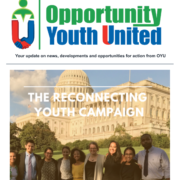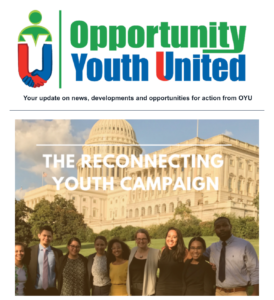Members of the Reconnecting Youth Campaign Meet with Senators to Urge Investment in Pathways to Opportunity
By Maharddhika
In its second year, the Reconnecting Youth Campaign has set a bold goal: build on the success of its inaugural year, which saw a $195 million increase in Congressional funds to programs that provide pathways to school, work and job training for Opportunity Youth. This year’s goal is to secure enough federal funding to reconnect one million Opportunity Youth—young people between the ages of 16 and 24 who are not in school or the workforce—each year. (Currently, programs such as AmeriCorps, the service and conservation corps, Public Allies, YouthBuild, Job Corps and the National Guard Youth ChalleNGe reach about 360,000 young people each year.)
On September 5, 2019, about 40 people from cross-sector partners and allies, including OYUnited leaders and members, gathered at the Center for Law and Social Policy (CLASP) office in Washington, DC. Among them were youth leaders from across the country who have been working in their hometowns to organize their peers and to build relationships with their Congressional Representatives to support this campaign.
Understanding the Situation and Solution
In the morning, young leaders gathered to learn about the appropriations process and about a range of policies that impact young people. Thomas Showalter, Executive Director of National Youth Employment Coalition, started the discussion with an update on the status of federal appropriations for programs that provide education, job training, counseling and community service for Opportunity Youth. Funding remains wholly insufficient. Strong and robust investments are needed to help reconnect 4.5 million Opportunity Youth. “Congress should be spending $4 billion more to serve the nation’s 4.5 million Opportunity Youth,” Showalter said.
There was also an opportunity to dig deeper into the federally funded programs and ask questions in smaller groups. Taimarie Adams, Government Relations Director of Service Year Alliance fielded questions on national service. Doug Ierely, Director of Advocacy & Policy with Youth Build USA, shared updates on the Workforce Innovation and Opportunity Act. Brendan O’Hara, Deputy Director of National Jobs Corps Association, discussed Jobs Corps. The current economic and political climate has posed some challenges for Job Corps. For example, on May 24, 2019, the U.S Department of Agriculture (USDA) announced its plan to terminate the U.S Forest Service’s long-standing operation of the 25 Job Corps Civilian Conservation Centers, which provide essential job training to disadvantaged Opportunity Youth across rural America.
The meeting also covered intersectional issues like the green economy. The green economy represents one of the fastest growing segments of the U.S. economy, offering a chance for policymakers, advocates, youth and industry leaders to rethink access to work, careers, innovation and opportunity.
Denise Fairchild, President & CEO of the Emerald Cities Collaborative drew the connection between the economy, the environment and equity. “Our young people are core to reshaping how America works, how it’s built and who gets benefit from it,” she said.
As one of strategies to raise the public visibility of these issues, young leaders learned how to effectively use social media to build awareness, amplify shared messages and calls to action, and inform and engage key stakeholders. The campaign hashtag is #ReconnectingYouth.
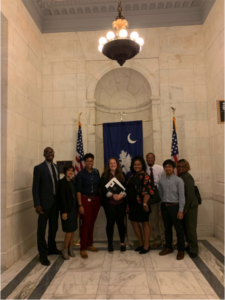
A Reconnecting Youth Campaign team on Capitol Hill
Hill Meetings: Connecting with Senators
After lunch (provided by Foodhini, a DC-based caterer with a social mission) and a training led by Opportunity Youth United founding member Shanice Turner, the campaign visited Capitol Hill to meet with the staff of 16 Senators: Dianne Feinstein (D-CA), Dick Durbin (D-IL), Lindsey Graham (R-SC), John Neely Kennedy (R-LA), Shelley Moore-Capito (R-WV), Cindy Hyde-Smith (R-MS), Jeanne Shaheen (D-NH), Jeff Merkley (D-OR), Brain Schatz (D-HI), Chris Murphy (D-CT), John Boozman (R-Ark), Tammy Baldwin (D-WI), Chris Coons (D-DE), Tom Udall (D-NM), Christopher Van Hollen (D-MD) and Tim Tillis (R-FL).
In the meetings, Reconnecting Youth Campaign members shared the youth disconnection rate in the Senator’s home state, and what it would mean for the state’s young people and its economy if the campaign’s goals of increased funding were met. According to the latest Measure of America data, West Virginia, New Mexico, Mississippi, Louisiana, Alabama and Arkansas are the states with highest with youth disconnection rate (ranging from 15.1 to 17.0 percent of young people).
The teams had two calls to action for each Senator: First, increase funding for Opportunity Youth programs during this appropriations process. Secondly, help create a Congressional Opportunity Youth Caucus to champion the needs and contributions of Opportunity Youth.
In a meeting with Meghan V. Dorn, Legislative Aide to Senator Lindsey Graham (R-SC), Troy Johnson, an Opportunity Youth United local team leader from Mississippi, shared how YouthBuild, helped him at a crucial time in his life. YouthBuild also opened up opportunities to join other great programs, like AmeriCorps.
“Those programs changed my life from what I was to where I am now. Funding for these program help me a lot. It was the great real investment,” Johnson said.
In response, Meghan V. Dorn said, “Senator Lindsey O. Graham always been supported the AmeriCorps program. It has been a really effective in South Carolina. We have seen the impact. We have seen the great value in that.”
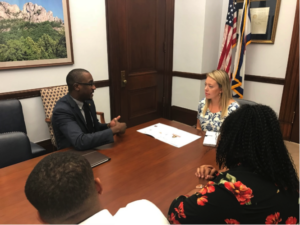
Members of the Reconnecting Youth Campaign meeting with Sen. Moore-Capito’s office.
Helping former Opportunity Youth connect directly with Members of Congress has been one of the biggest factors in the Reconnecting Youth Campaign’s first-year success. The campaign and the local youth leaders are making sure the relationships continue to grow.
As one young leader explained during the convening, it’s a good idea to start building relationships before you need to ask for support for bills or funding. Also, the pre-election phase, when politicians are thinking about winning or retaining office, is another strategic moment to build relationships and negotiate needs.
________________________
The Reconnecting Youth Campaign is a collaborative campaign calling on Congress to invest in America’s future by funding 1 million pathways to education, training, national service and employment opportunities for Opportunity Youth, 16- to 24-year-olds who are not in school or work.
It brings together more than 40 organizations, including Opportunity Youth United, to call on Congress to invest more in the programs that work, so they can reach more of our nation’s 4.5 million Opportunity Youth. You can learn about the mission and members here. You can read the first-year report on the Campaign’s work and impact here.
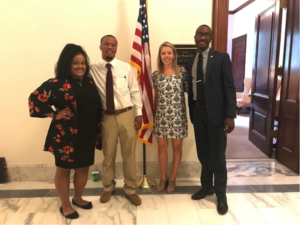
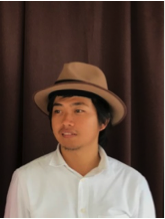
Maharddhika is visiting fellow with the Forum for Youth Investment’s SparkAction initiative, through the U.S. Department of State’s Community Solutions Program. In his home country of Indonesia, he is a program officer for Association for Election and Democracy, and NGO based in Jakarta. He has experience in conducting advocacy research that supports marginalized groups’ right to participate in free and fair elections and to keep their sovereignty in democracy. He is passionate about civic education for young people to participate in various aspects of civic life: voting, volunteering, deliberating on issues and advocating for a cause.
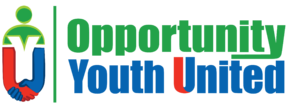
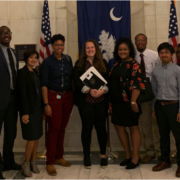
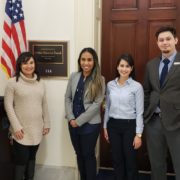
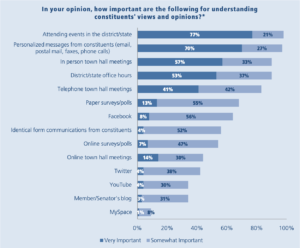
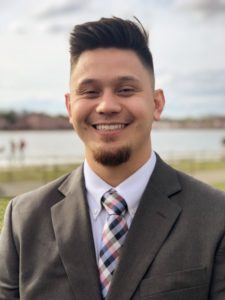 Adam Strong is a founding member of OYUnited and member of OYUnited’s National Council of Young Leaders. A passionate advocate and lifelong learner, he has six years of experience in national policy advocacy, using his skills in policy analysis and communication & strategy he aims to influence policymakers to implement policies that increase economic mobility and decrease poverty in America.
Adam Strong is a founding member of OYUnited and member of OYUnited’s National Council of Young Leaders. A passionate advocate and lifelong learner, he has six years of experience in national policy advocacy, using his skills in policy analysis and communication & strategy he aims to influence policymakers to implement policies that increase economic mobility and decrease poverty in America.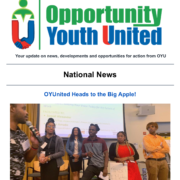
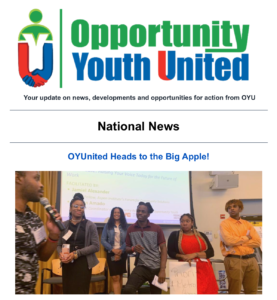
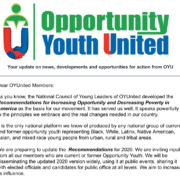
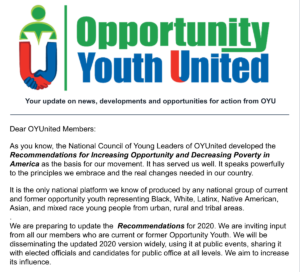
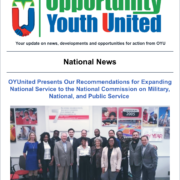
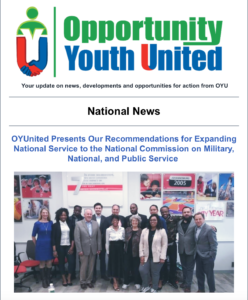
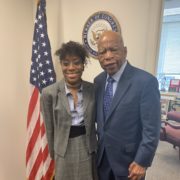
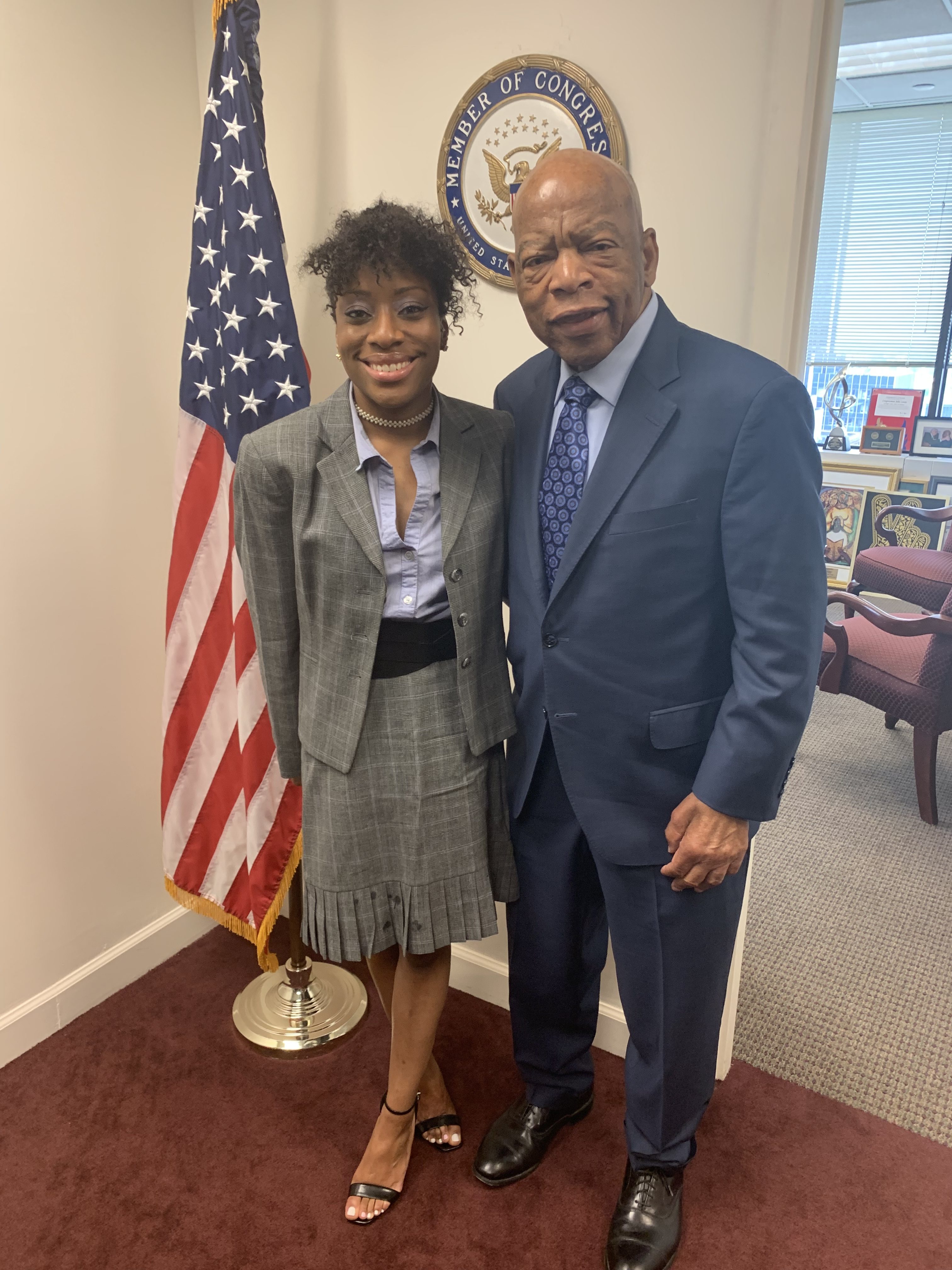
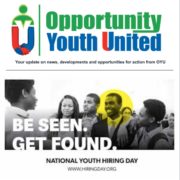
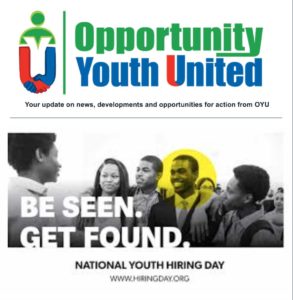
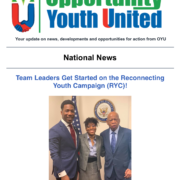
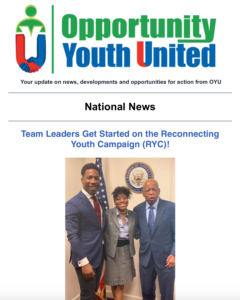
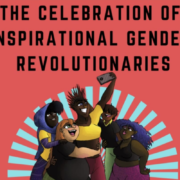
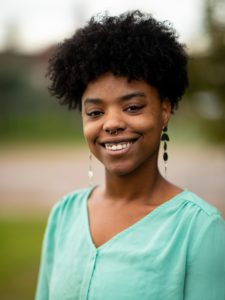 Makayla Wright (she/her/they) is the Youth Voice Organizer for SOAR, a Seattle-based community coalition working together to promote the healthy development of children, youth and families in Martin Luther King County and the anchor organization for the OYUnited Community Action Team (CAT) in Seattle. Makayla grew up in Leavenworth, Kansas. As the child of former Opportunity Youth who never went back to school to get their GEDs, she realized how important it was to work with young adults in similar situations. Makayla graduated from Smith College and has worked in educational outreach programs, youth residential treatment facilities, charter schools, and as an Academic Coach. As a Black woman from the Midwest, she is passionate about exploring root issues and working with communities, and now advocates for youth and young adults by convening the King County Youth Advisory Council and organizing the King County OYunited CAT.
Makayla Wright (she/her/they) is the Youth Voice Organizer for SOAR, a Seattle-based community coalition working together to promote the healthy development of children, youth and families in Martin Luther King County and the anchor organization for the OYUnited Community Action Team (CAT) in Seattle. Makayla grew up in Leavenworth, Kansas. As the child of former Opportunity Youth who never went back to school to get their GEDs, she realized how important it was to work with young adults in similar situations. Makayla graduated from Smith College and has worked in educational outreach programs, youth residential treatment facilities, charter schools, and as an Academic Coach. As a Black woman from the Midwest, she is passionate about exploring root issues and working with communities, and now advocates for youth and young adults by convening the King County Youth Advisory Council and organizing the King County OYunited CAT.